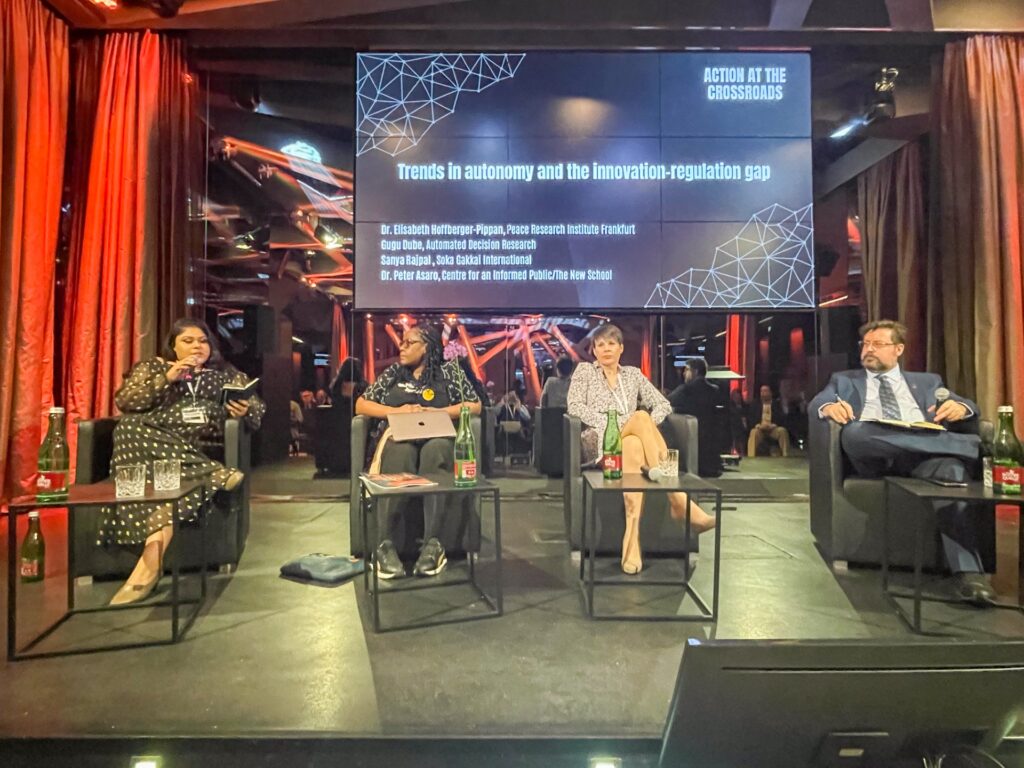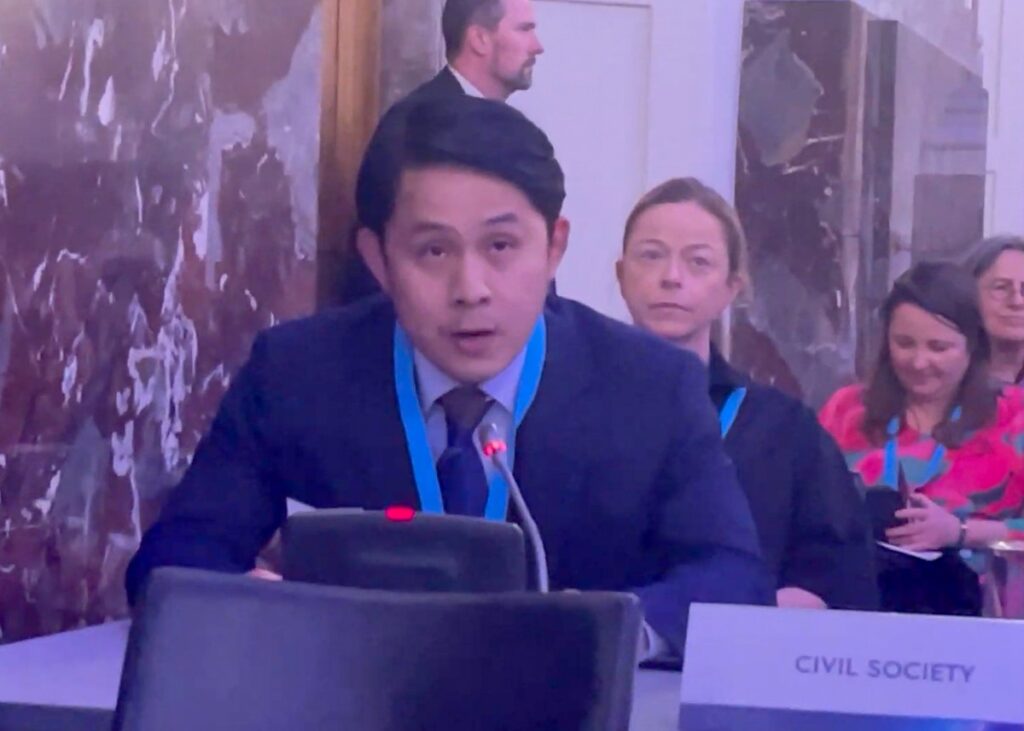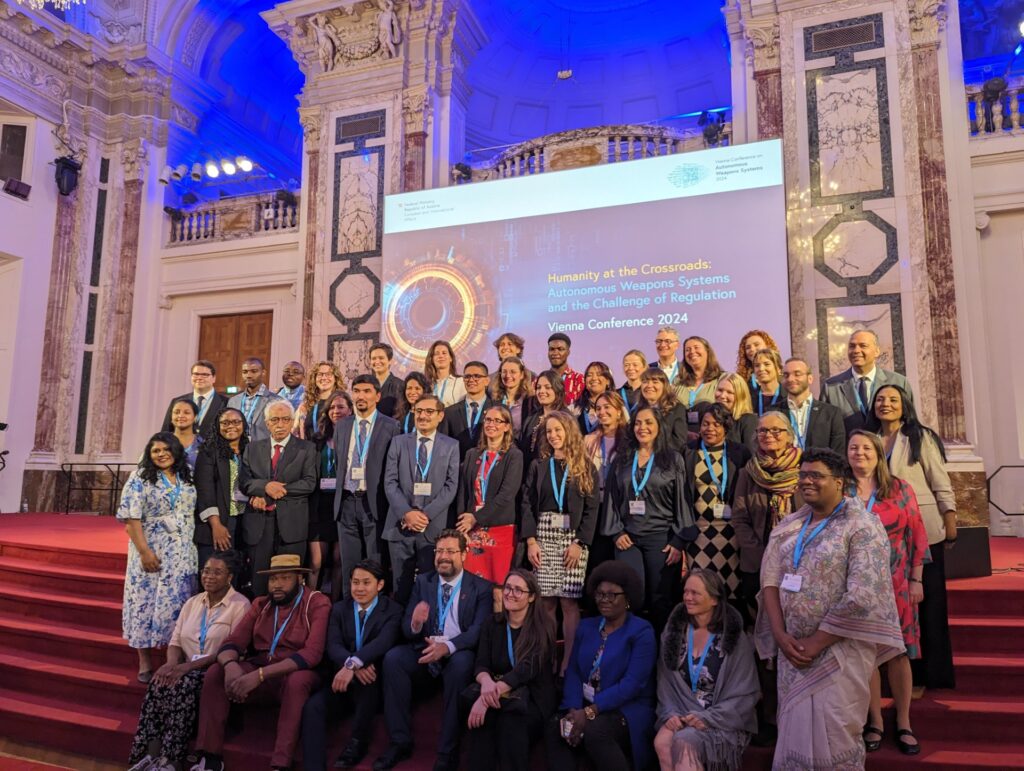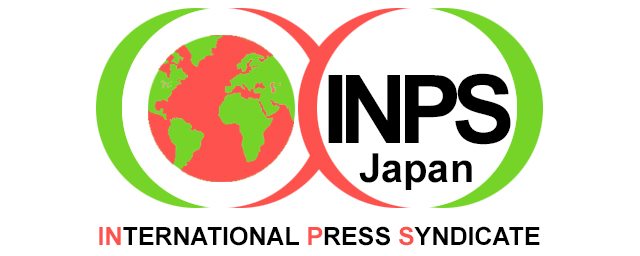By Sanya Rajpal
London (INPS Japan) –In late April, Vienna, Austria, became a focal point for global discussions on regulating autonomous weapons systems. The city hosted two significant events: the “Action at the Crossroads” civil society conference with partners Stop Killer Robots, PAX, and the Austrian Red Cross, and organised in cooperation with the Austrian Federal Ministry for European and International Affairs, and the “Humanity at the Crossroads: Autonomous Weapons and the Challenge of Regulation” hosted by the Austrian government. Representing Soka Gakkai International at these events were Hayato Yamashita and Sanya Rajpal, who highlighted the urgent ethical and humanitarian concerns posed by autonomous weapons.
Action at the Crossroads: Civil Society In Action.
The “Action at the Crossroads” at Palais Wertheim addressed critical themes, pointing to previously successful campaigns against global weapons threats and highlighted the need for civil society action.
Sanya Rajpal participated in a panel discussing technology development and regulatory gaps. Pointing out the long standing trend of dehumanization, firstly as machines in the industrial revolution, as capital during the shift towards neoliberal ideals, then as products as part of our hyper consumerist world, and now finally as data during the age of AI; she emphasised the need for a paradigm shift towards collective human dignity. Practically, pointing out that it’s vital to maintain human autonomy not just in the moment of taking life-and-death decisions, but also in how development of critical technology and the analysis of data to provide insights, is carried out.


Hayato Yamashita also presented at an interfaith workshop, discussing the concept of “ethical disconnect” as outlined by SGI President Daisaku Ikeda and how the detachment between those who direct attacks and those targeted undermines humanistic considerations and will lead to more inhumane warfare. Advocating for community-centric peace-building through dialogue and for faith-based organizations to actively engage with muli-lateral stakeholders to protect human dignity.
Humanity at the Crossroads: A Global Effort
Following this, the “Humanity at the Crossroads” conference on April 29-30 at Hofburg Palace saw over 140 states and more than 1,000 participants, including representatives from UN agencies and civil society. Austrian Federal Minister for European and International Affairs, Alexander Schallenberg, opened the conference with a call to action: “We cannot let this moment pass without taking action. Now is the time to agree on international rules and norms to ensure human control.” Yamashita delivered a statement on behalf of SGI, reiterating the importance of technologies serving humanity’s overall prosperity and calling for international regulations.
Throughout the conference, participants explored the legal, ethical, humanitarian, and security challenges posed by autonomous weapons systems. The conferences focused on several critical themes:
- Emphasis on Human Control: The integration of AI into autonomous weapons systems poses a threat by removing nuance and ethical judgments from decision-making. Thus undermining human control and accountability, the risk of indiscriminate and escalating violence was highlighted
- Bias and Unstable Technology Development: The development and training of AI technology are fraught with multiple types of biases – lack of diversity, inaccurate simulated scenarios and an inclination towards action – risking unpredictable and disproportionate action and decisions in real-world scenarios.
- Ethical and Legal Frameworks: The rapid evolution and complexity of autonomous weapons technology outpace existing legal frameworks. This lack of coherent regulation and clarity in intent, execution, and incentives complicates the accountability and repercussions for war crimes involving autonomous weapons.
- Accessibility and Proliferation Risks: Autonomous weapons systems, unlike traditional global weapons threats like chemical, biological, or nuclear arms, do not require complex materials or machinery. They are relatively inexpensive and accessible, making it possible for wider proliferation. This widespread accessibility and inconsistency in quality necessitate a coordinated effort involving multiple stakeholders to address the issue effectively.
The conference concluded with the Austrian government issuing a chair’s summary report, which reinforced the importance of human control over new technologies. The report stated, “Human control must prevail in the use of force. The delegation to machines of decisions over choice of targets and life and death is an issue that concerns all of us.” It urged all states and stakeholders to submit their views on autonomous weapons systems to the UN Secretary-General, in line with the 2023 UNGA Resolution on “Lethal Autonomous Weapons Systems.” The report also affirmed a strong commitment to working urgently with all interested stakeholders to develop an international legal instrument to regulate autonomous weapons systems.
In conclusion, the Vienna conferences highlighted the urgent need for international cooperation and ethical considerations in regulating autonomous weapons systems.
Fundamentally, in the effort to protect our collective humanity in the face of ever-evolving technology and increasingly distant institutions, these events served as a reminder of what is possible through public awareness, civil society and global state collaboration – as with past efforts to protect against the global threats of chemical, biological or even nuclear weapons. This very belief in the power of collective action, is the vital first step away from internalizing dehumanization and towards protecting human dignity.

INPS Japan
Related Articles:
At the Crossroads: The Urgent Call for International Regulation of Autonomous Weapons Systems
Kazakhstan Continues to Suffer Awful Impact of Nuclear Tests
Interview with Sanya Rajpal, SGI-UK in Vienna on Aug 1, 2023


